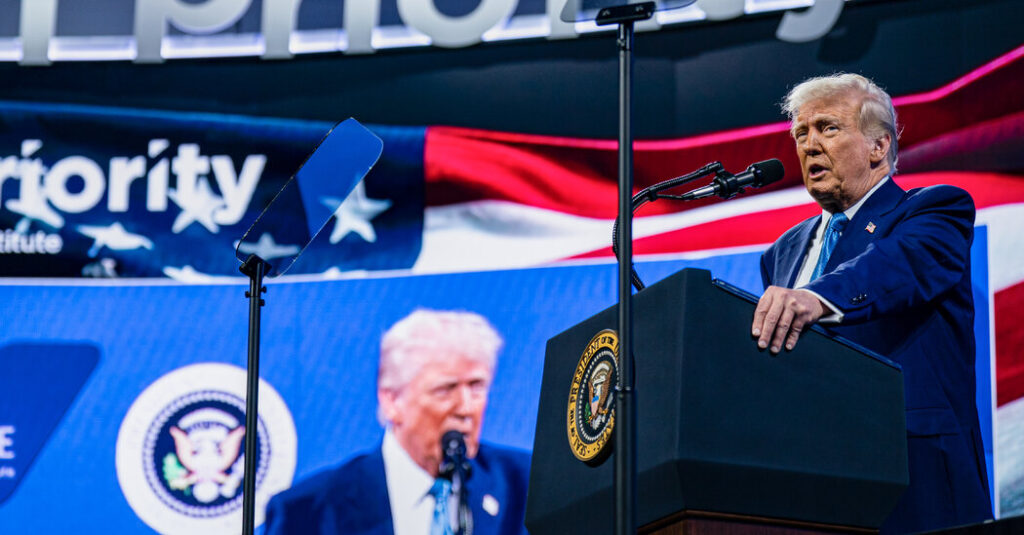President Trump said on Wednesday evening that the newly established Department of Government Efficiency might return a portion of the savings accrued through job cuts and other budget curbs to American taxpayers.
The idea of giving back 20 percent of the money saved as a result of initiatives recommended by the new department, known as DOGE, is “under consideration,” said Mr. Trump. The potential initiative, he said, was “a new concept” under which his administration would give “20 percent of the DOGE savings to American citizens” and “20 percent goes to paying down debt.” (He didn’t mention what would be done with the other 60 percent of the money.)
It was not immediately clear whether Mr. Trump was referring to paying off consumer debt or paying off the national debt, which currently stands at $36 trillion, but his comments suggested that he may have been talking about both. In January before Mr. Trump was inaugurated, Elon Musk, the entrepreneur who is leading DOGE, set expectations for cost cutting at $1 trillion.
Mr. Trump provided scant details on the potential taxpayer returns, including on whether the proposal was even feasible or if he would need congressional approval. A White House spokesperson did not immediately respond to a request for comment.
Mr. Trump made his remarks during an international investment conference in Miami Beach, Fla., hosted by the Future Investment Initiative, a Saudi Arabian foundation that promotes the kingdom’s economy and cultural priorities through a variety of annual events.
The president spoke to a packed auditorium with an audience that featured Mr. Musk; Yasir al-Rumayyan, the governor of the Saudi Arabian sovereign-wealth fund; Princess Reema Bandar al-Saud, the Saudi Arabian ambassador to the United States; and Gianni Infantino, the president of FIFA, soccer’s global governing body.
Mr. Trump praised the work that DOGE was doing, promising that the department would save “billions, hundreds of billions” of dollars in wasteful spending.
And he stressed the importance of paying down debt.
“If it were a real estate balance sheet, the debt is tiny, but we still want to pay it down,” he said.
He added: “We don’t look at it as a piece of real estate. It’s America.”


